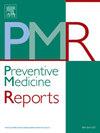Experience of maternal immunization among women living with HIV in Belgium: A mixed-methods study
IF 2.4
3区 医学
Q2 PUBLIC, ENVIRONMENTAL & OCCUPATIONAL HEALTH
引用次数: 0
Abstract
Objective
Maternal immunization during pregnancy has benefits for both women living with HIV (WLWH) and their HIV-exposed uninfected newborns. Vaccine hesitancy may hamper vaccine acceptability during pregnancy. We aimed to assess the experience of WLWH with a history of pregnancy with maternal immunization.
Methods
In-person quantitative survey with embedded collection of qualitative data was performed among WLWH with a history of pregnancy.
Results
Between October and November 2021, a total of 20 WLWH followed at Saint-Pierre University Hospital Center HIV reference center in Brussels (Belgium) were included. The majority originated from Sub-Saharan Africa and had education level below or equivalent to secondary school. Most of the participants agreed that vaccination during pregnancy is necessary, highlighting the benefits for the health of the mother and the newborn. Reluctant participants expressed concerns about safety or lack of information. Most of the participants mentioned health-care providers (HCP) (mainly HIV physician) as the main person of trust for vaccine information in general. Social media were also mentioned as an important source of information on vaccination.
Conclusions
The benefits for the mother and the newborn were associated with favorable opinion on maternal immunization while doubt about safety or lack of information appeared to be hurdles to acceptance. Proactive communication on the benefit of maternal immunization for both the mother and newborn by HIV physician and HCP involved in prenatal care is needed to increase acceptability of maternal immunization among WLWH.
比利时艾滋病毒感染妇女的孕产妇免疫接种经验:一项混合方法研究
目的怀孕期间的孕产妇免疫接种对感染艾滋病毒的妇女及其暴露于艾滋病毒的未感染新生儿都有好处。疫苗犹豫可能妨碍怀孕期间疫苗的可接受性。我们的目的是评估WLWH与孕妇免疫史的经验。方法对有妊娠史的产妇进行多人定量调查,采用嵌入式定性资料收集法。结果在2021年10月至11月期间,在比利时布鲁塞尔圣皮埃尔大学医院中心HIV参考中心随访的WLWH共20例。大多数人来自撒哈拉以南非洲,受教育程度低于或相当于中学。大多数与会者同意,在怀孕期间接种疫苗是必要的,强调了对母亲和新生儿健康的好处。不情愿的参与者表达了对安全或缺乏信息的担忧。大多数与会者提到保健提供者(主要是艾滋病毒医生)是一般疫苗信息的主要信任人。还提到社交媒体是疫苗接种信息的重要来源。结论对母亲和新生儿的益处与对母亲免疫接种的好感有关,而对安全性的怀疑或信息的缺乏似乎是接受的障碍。参与产前护理的HIV医生和HCP需要就孕产妇免疫接种对母亲和新生儿的益处进行主动沟通,以提高孕产妇免疫接种在低生育水平妇女中的可接受性。
本文章由计算机程序翻译,如有差异,请以英文原文为准。
求助全文
约1分钟内获得全文
求助全文
来源期刊

Preventive Medicine Reports
Medicine-Public Health, Environmental and Occupational Health
CiteScore
3.90
自引率
0.00%
发文量
353
 求助内容:
求助内容: 应助结果提醒方式:
应助结果提醒方式:


